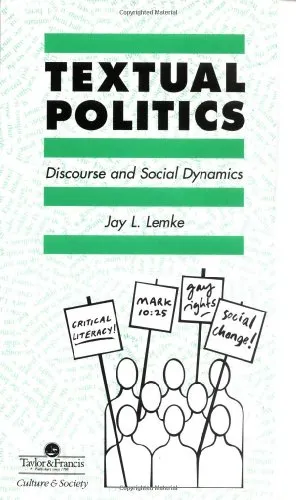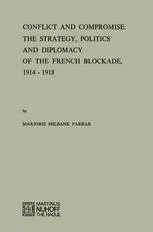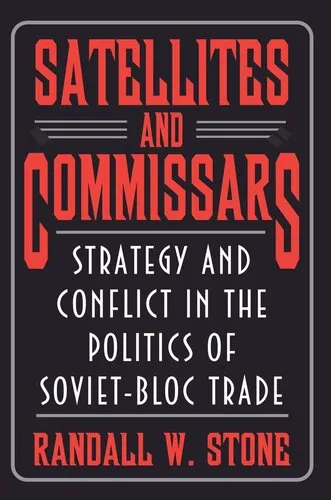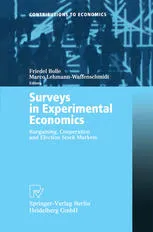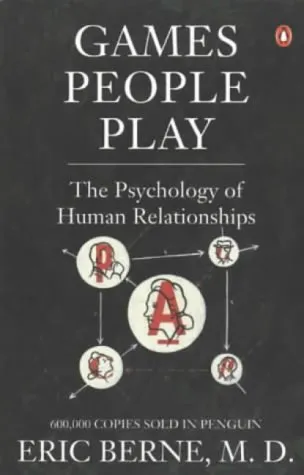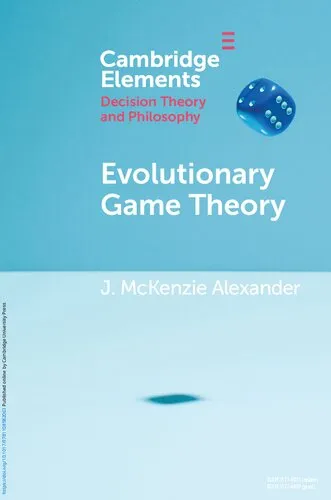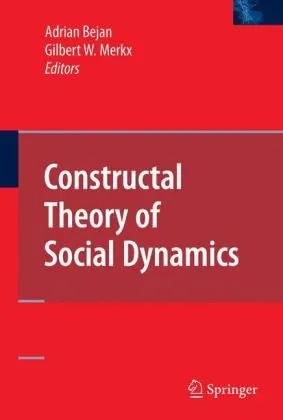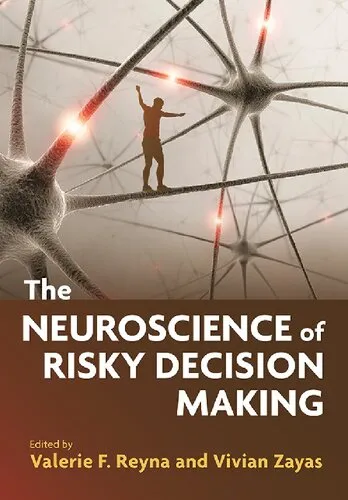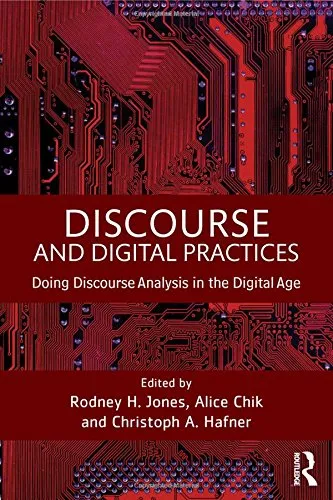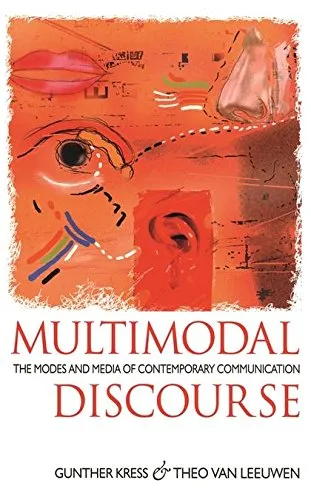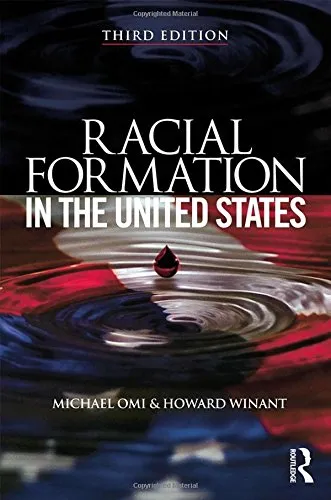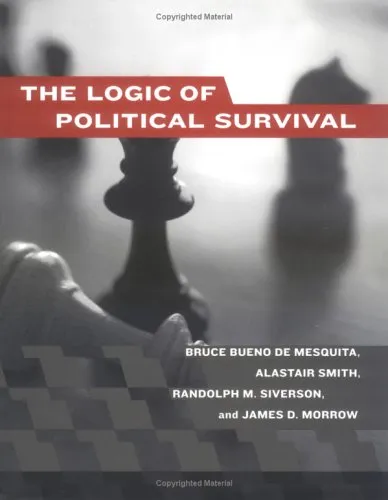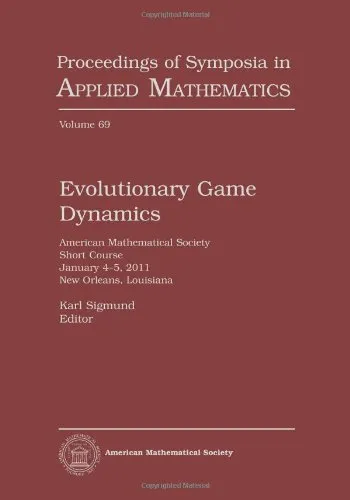Textual Politics: Discourse And Social Dynamics: Discourse & Social Dynamics (Critical Perspectives on Literacy and Education)
4.5
بر اساس نظر کاربران

شما میتونید سوالاتتون در باره کتاب رو از هوش مصنوعیش بعد از ورود بپرسید
هر دانلود یا پرسش از هوش مصنوعی 2 امتیاز لازم دارد، برای بدست آوردن امتیاز رایگان، به صفحه ی راهنمای امتیازات سر بزنید و یک سری کار ارزشمند انجام بدینکتاب های مرتبط:
معرفی کتاب "Textual Politics: Discourse And Social Dynamics"
کتاب "Textual Politics: Discourse And Social Dynamics" نوشته J. Lemke، یک اثر بینظیر در زمینه مطالعات گفتمان است که به بررسی تعاملات میان متن، سیاست و پویاییهای اجتماعی میپردازد. این اثر در مجموعه "Critical Perspectives on Literacy and Education" قرار دارد و به طور خاص بر نقش قدرت و ایدئولوژی در گفتمانهای متنی تمرکز میکند. با بهرهگیری از تحلیلهای میانرشتهای و کاربرد مفاهیم کلیدی مانند Discourse Analysis، نویسنده نقشی مهم در شکلدهی فهم ما از تاثیرات اجتماعی و فرهنگی متون ایفا میکند.
خلاصهای از کتاب
کتاب به سه بخش اصلی تقسیمبندی شده است که هر بخش به صورت پیوسته تحلیلی عمقی از ارتباط میان متن و جامعه ارائه میدهد. بخش اول به مفهوم کلی گفتمان و چگونگی شکلگیری آن در میان ساختارهای اجتماعی میپردازد. در بخش دوم، نویسنده به بررسی تحلیلهای عملی از متون واقعی در محیطهای آموزشی و فرهنگی میپردازد. موضوعات این بخش شامل نحوه برخورد دانشآموزان با متون در حوزههای مختلف و نقش ایدئولوژی و هژمونی در گفتمانهاست. در بخش سوم، توجه ویژهای به تاثیرات سیاستهای اجتماعی و فرهنگی بر ساختار گفتمان و شکلدهی معنای اجتماعی داده شده است.
این کتاب به وضوح نشان میدهد که متون فقط ابزارهای ارتباطی نیستند، بلکه پدیدههایی هستند که تحت تاثیر نیروهای قدرت، سیاست و خلاقیت اجتماعی شکل میگیرند. از اینرو، Lemke روشی تحولآفرین برای اندیشیدن در مورد گفتمان ارائه میدهد.
نکات کلیدی کتاب
- ارتباط میان Discourse Analysis و قدرتهای اجتماعی
- نقش هژمونی فرهنگی در شکلدهی معنای متون
- اهمیت آموزش در گفتمانسازی و تأثیرگذاری اجتماعی
- تاثیرات متقابل بین سیاست، فرهنگ و گفتمان
- روند شکلگیری و بازتولید ایدئولوژی در متون
جملات معروف از کتاب
"Every text is a social event, and every act of reading is a moment of renegotiating power and meaning."
"Our ability to critically analyze texts enables us to break free from invisible ideologies embedded within them."
"Literacy is not just about reading words but also about interpreting the social frameworks that those words inhabit."
چرا این کتاب مهم است؟
"Textual Politics: Discourse And Social Dynamics" یک ابزار قدرتمند برای هر کسی است که میخواهد تاثیرات متن و گفتمان را بر زندگی اجتماعی و فرهنگی جامعه درک کند. این کتاب اهمیت ویژهای برای محققان علوم انسانی، آموزش، علوم اجتماعی و حتی افرادی که در حوزه مطالعات فرهنگی فعال هستند، دارد. نویسنده توانسته است ارتباط میان مفاهیم پیچیدهای مانند ایدئولوژی، قدرت و تحلیل متنی را برای خوانندگان به شیوهای جذاب و کاربردی توضیح دهد. از سوی دیگر، این کتاب ابزارهایی تحلیلی در اختیار خوانندگان قرار میدهد که بهطور عملی بتوانند متون پیرامون خود را بررسی و نقد کنند. این رویکرد، به نوعی توانمندسازی فکری و روششناختی برای فعالان و پژوهشگران است.
در دنیای امروز که متون دیجیتال و فیزیکی در هر لحظهای ما را احاطه کردهاند، فهم تاثیرات آنها بر ذهنیتها و رفتار اجتماعی بیش از پیش ضروری است. این کتاب نه تنها به شما انگیزه و بینشی برای اندیشیدن به این مسائل میدهد، بلکه برای درک عمیقتر و نقد موثر، ابزارهای لازم را نیز ارائه میکند.
Introduction to "Textual Politics: Discourse and Social Dynamics"
"Textual Politics: Discourse and Social Dynamics" examines the intricate relationship between language, power, and social orders. Written with a critical lens on how texts and discourses shape social realities, this book dives into the intersection of literacy practices, education, and socio-political transformation. As part of the Critical Perspectives on Literacy and Education series, it provides readers with the tools to analyze how texts are embedded in systems of power and how they perpetuate or destabilize these systems. The book is deeply rooted in socio-cultural theory, offering a practical perspective for educators, researchers, and activists who seek to understand the political nature of discourse and literacy.
Detailed Summary of the Book
At its core, "Textual Politics" explores how discourse not only reflects but also actively shapes social dynamics and structures. Language is never neutral—it is laden with intentions, ideologies, and implications for both individuals and communities. This text provides a framework for understanding the dynamics of "textual politics," where texts serve as mechanisms of power, status quo reinforcement, and potential sites for resistance.
The book is structured to guide readers from theoretical foundations to practical applications. Early chapters define discourse and its role in constructing meaning in social contexts. Readers are introduced to the concept of intertextuality and how texts are situated within broader systems of communication. By analyzing real-world examples—from classroom interactions to mass media communications—Lemke demonstrates how language policies, educational curricula, and public discourses all contribute to maintaining or challenging institutional power.
One of the book’s significant contributions is its examination of literacy education. Lemke critiques traditional approaches that treat literacy as a set of decontextualized skills. Instead, he presents literacy as a socially situated practice intertwined with cultural norms and power relations. Drawing on case studies, the book illustrates that teaching students to critically analyze discourse empowers them to navigate complex social systems, challenge hegemonic narratives, and become agents of change.
Key Takeaways
- Discourse is a deeply political and social phenomenon, shaping and shaped by power structures.
- Texts are not stand-alone entities; they are part of larger social, cultural, and historical frameworks.
- Literacy must be understood as a practice embedded in context, not merely as a technical skill.
- Critical analysis of texts fosters societal awareness and empowers individuals to resist oppressive systems.
- Education plays a crucial role in shaping students’ abilities to engage with and transform social discourse.
Famous Quotes from the Book
"Texts are never neutral; they embody ideologies, sustain social structures, and carry the weight of historical power struggles."
"To comprehend a text is to see its connections—not just to other texts, but to the social world in which it lives."
"Literacy is far more than the ability to read and write; it is the capacity to interpret and intervene in the world."
Why This Book Matters
"Textual Politics" serves as an essential guide for anyone seeking to understand the critical role of language in society. In an era marked by misinformation, media manipulation, and increasing inequality, the power of discourse feels more significant than ever. The book equips educators, researchers, and activists with a robust framework for analyzing and challenging the narratives that sustain social injustices.
Furthermore, the book’s focus on education highlights its relevance in empowering future generations. By rethinking traditional approaches to literacy and teaching students to critically engage with texts, this work fosters a deeper understanding of the role of communication in social transformation. Through practical examples and theoretical insights, Lemke encourages readers to rethink their relationship with language and to harness its transformative potential for creating more equitable societies.
Ultimately, "Textual Politics" offers both a critique of existing systems and a hopeful call to action. It reminds us that through critical dialogue, analysis, and education, society has the tools to resist injustice and build a more inclusive future.
دانلود رایگان مستقیم
شما میتونید سوالاتتون در باره کتاب رو از هوش مصنوعیش بعد از ورود بپرسید
دسترسی به کتابها از طریق پلتفرمهای قانونی و کتابخانههای عمومی نه تنها از حقوق نویسندگان و ناشران حمایت میکند، بلکه به پایداری فرهنگ کتابخوانی نیز کمک میرساند. پیش از دانلود، لحظهای به بررسی این گزینهها فکر کنید.
این کتاب رو در پلتفرم های دیگه ببینید
WorldCat به شما کمک میکنه تا کتاب ها رو در کتابخانه های سراسر دنیا پیدا کنید
امتیازها، نظرات تخصصی و صحبت ها درباره کتاب را در Goodreads ببینید
کتابهای کمیاب یا دست دوم را در AbeBooks پیدا کنید و بخرید
1324
بازدید4.5
امتیاز0
نظر98%
رضایتنظرات:
4.5
بر اساس 0 نظر کاربران
Questions & Answers
Ask questions about this book or help others by answering
No questions yet. Be the first to ask!
